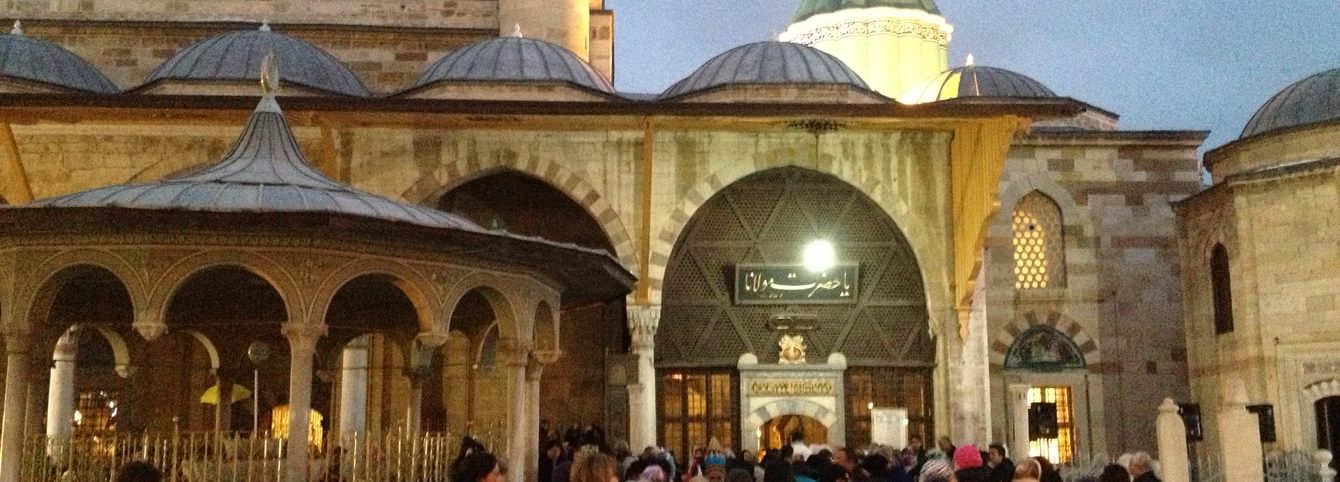By Allison Kanner (Ankara, Turkey ’13)
Every Thursday morning, I leave my apartment in Kadikoy to go sit in a room full of women from across Istanbul, placing myself within a community that I have come to realize constitutes a unique and telling microcosm of this thriving city.
I often kiss cheeks with a woman in designer sunglasses before turning to greet another woman dressed in full head-covering as she raises her glance from a beeping iPhone. We wait for the teacher, Cemalnur Sargut, to enter and begin elucidating verses from Rumi’s Mesnevi.
This meeting is part of a long tradition known as sohbet, which involves direct spiritual conversation between teacher and students to help guide the students’ understanding of particularly dense Sufi texts. Nonetheless, Cemalnur also references other renowned thinkers while commentating on the verses from the Mesnevi, mixing in the words of religious figures such as Ibn Arabi and Mary, as well as her own personal readings of modern philosophers like Schopenhauer and social movements such as womens’ rights and environmentalism.
When I came to Istanbul in September, I was enthralled by these conversations. They got right to the heart of my interests in the ways Islamic, and particularly Sufi traditions, are interpreted and practiced in modern-day Turkey. I began volunteering with the organization TURKKAD, which is headed by Cemalnur Sargut, so that I could attain an insiders’ look into how this female-headed organization promoted the cultural and historical understanding of Sufism in modern society.
However, I soon began to feel like a shadow at the events I attended because although I was able to understand many of the conversations taking place, I struggled to actively contribute. This sense led me to apply for and use my CLS Alumni Development Fund award to take an intensive upper-intermediate Turkish course at the TOMER language school in December.
Taking the course gave me the confidence and increased linguistic capacity to delve into new ventures with TURKKAD while at the same time critically placing their work within a larger context. I was granted the opportunity to travel with members of the organization to Konya for the Sheb-i Arus, or wedding night, of Jalaluddin Rumi. Thousands of pilgrims go to this place every year to commemorate Rumi’s death.
This was a phenomenal experience that enabled me to see people from countless nations speaking numerous languages gathering to show their appreciation of Rumi’s teachings. For me, observing how these people came together in a modern-day setting to discuss and re-interpret teachings from the twelfth century was really powerful.
I have also been helping prepare an English edition of some of Cemalnur’s sohbet. I am mostly contributing through the organization of the text and insertion of subtitles to make it more approachable for an English-speaking audience.
I am grateful for being involved in these projects. Although my future plans will involve a more historical focus on the interaction of Islamic thought and traditions with modernity (from an early twentieth century perspective), my work and experiences over the past year have made me more critically aware of the constantly shifting poles of nationalism, secularism, and Islamic heritage within modern Turkish society. I look forward to considering more widely this context in my next endeavors, as well as any new doors that open along the way.


